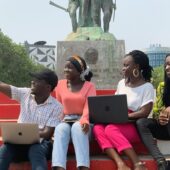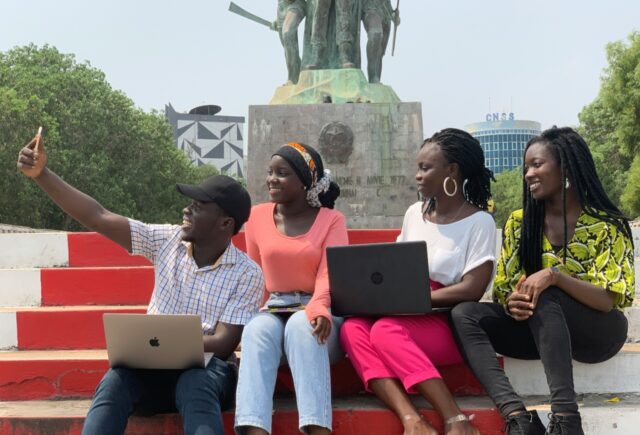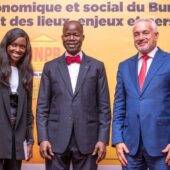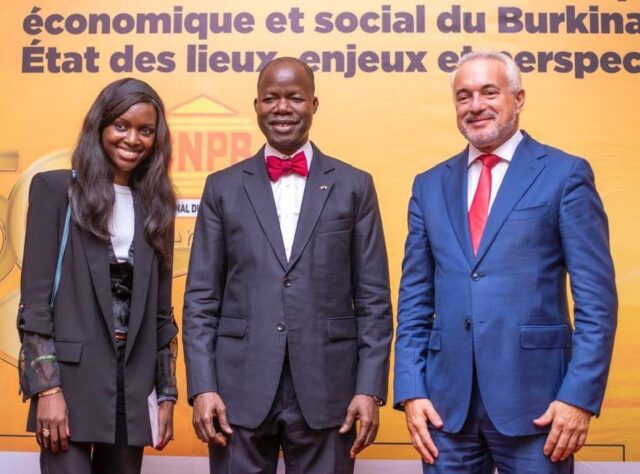This summer Impact Investor talks to investors and entrepreneurs about how the pandemic shifted priorities. This week: Philip Tan, managing director of Polestar Capital.

CV
- Managing director, Polestar Capital, Hilversum, the Netherlands, 2012-present
- Legal director at structured finance firm Finquiddity Grondvermogen BV, Hilversum, the Netherlands, 2010-present
- Lawyer (senior associate) at Stibbe law firm in Amsterdam, the Netherlands, 1999-2008
Tan realised the coronavirus outbreak in Wuhan was serious when the central Chinese city built a huge field hospital in just one week in February 2020.
“When that happened, I realised this isn’t just some ordinary cold, this is going to be big,” said Tan. “I wondered: what does this mean for us? And what does this mean for our portfolio? We are in the business of financing sustainable and circular projects, and many of our entrepreneurs are in the first stage of realising their projects. How sensitive will those projects be to a pandemic?”
Tan, 47, is a former corporate lawyer who decided to pursue a career in impact investing after watching Al Gore’s 2006 movie ‘An Inconvenient Truth’, which highlighted the dangers of climate change.
“In hindsight, it wasn’t as bad as I feared,” said Tan about the impact of the pandemic on Polestar Capital, an impact financier and Dutch asset manager which manages the Limburgs Energie Fonds (Limburg Energy Fund) and operates the Nationaal Warmtefonds (Dutch National Heat Fund).

Fallout from the crisis
“Two of our companies went under,” said Tan. One of them produced small tourist road trains running on solar energy.
“When the entire tourism sector ground to a halt, this company no longer had a market,” said Tan. “And after most countries closed their borders, it wasn’t able to sell the trains it had already produced. On top of that, they also had to cope with their staff falling ill. It meant an immediate end to the business.”
For the people involved “it was of course a huge tragedy,” Tan said. “But the fallout from the pandemic on our portfolio wasn’t as bad as we had initially feared.”
Strong growth
In fact, Polestar Capital, which manages or operates funds that finance innovative and scalable projects aimed at speeding up the renewable energy and circular economy transitions, experienced strong growth in the past year.
“During the pandemic we went from a company of nine people to a company of some 42 people, responsible for around €1bn in assets,” said Tan. The firm is also about to move into a new head office and is applying for a fund management licence in the Netherlands.
Polestar Capital’s growth in the past year is mainly due to its work as fund manager of the Limburgs Energy Fund (LEF), Tan said. The investment fund is financed by the southern Dutch province of Limburg and the European Investment Bank (EIB).
LEF, which provides funding in the form of venture capital or (subordinated) loans, is set to triple in size to €270mn assets under management in the next couple of years. The fund will be investing in energy saving, sustainable energy production, asbestos removal, or the circular economy in Limburg.
Polestar is also the operational manager of the Dutch National Heat Fund (NWF), which provides financing to private home owners, homeowners associations and schools in the Netherlands that want to make their real estate more sustainable.
NWF is financed by the Dutch government, Rabobank, ASN Bank, ING Bank, the Council of Europe Development Bank and the EIB, and focuses on originating €650mn in loans in the next few years. Polestar Capital is also launching a new circular investment strategy next year.
Although work on the launch had already started before the coronavirus outbreak, “the pandemic didn’t hurt its momentum”
10 square metres per person
It was also a challenging year for Tan personally. The pandemic coincided with Tan and his wife and their three young children moving into temporary accommodation in a Dutch holiday park while they waited for their sustainable new home to be built.
Just before the family was about to move into the holiday home the Dutch government announced a national lockdown, closing all schools and ordering all office workers to work from home.
“All of a sudden we were both working from home with three young children on 50 square meters, so that’s 10 square metres per person,” recalled Tan.
“We had to homeschool the kids and also had our own work. We ended up doing shifts. I started teaching in the morning while my wife worked. She would take over in the afternoon while I worked, often until around 11PM. I also often worked weekends. This whole period lasted about six weeks. It was pretty tough and at times hell!”
‘People person’
Tan said the pandemic has led to changes in his management style. For example, he is now happy for his staff to work from home a few days a week. He will also travel less for work compared to before the crisis.
“I’ve become more of a people person,” he said. “Personal connections are really important, and I have noticed how much people have missed that. Some of our younger employees especially really wanted to return to the office, because they were going stir crazy at home.”
Polestar Capital recently organised a bonding session for all of its employees out in the woods. “It was the first time I saw some of the people that I had hired months ago in person,” Tan recalled. “That was a bizarre experience.”





